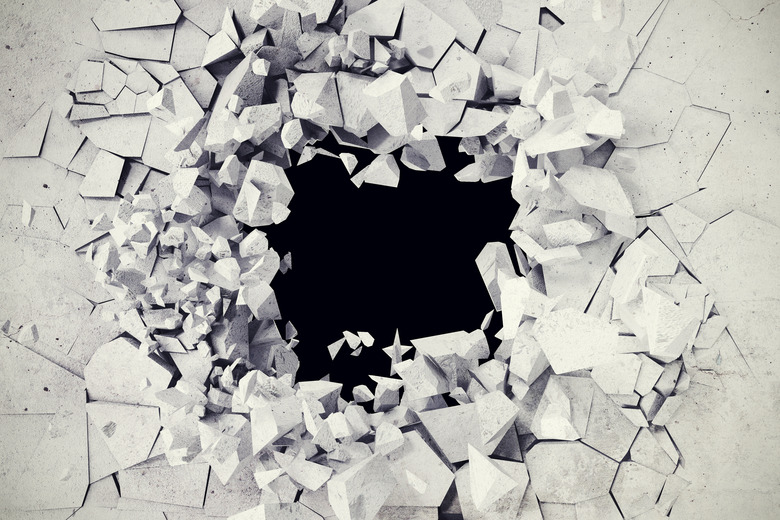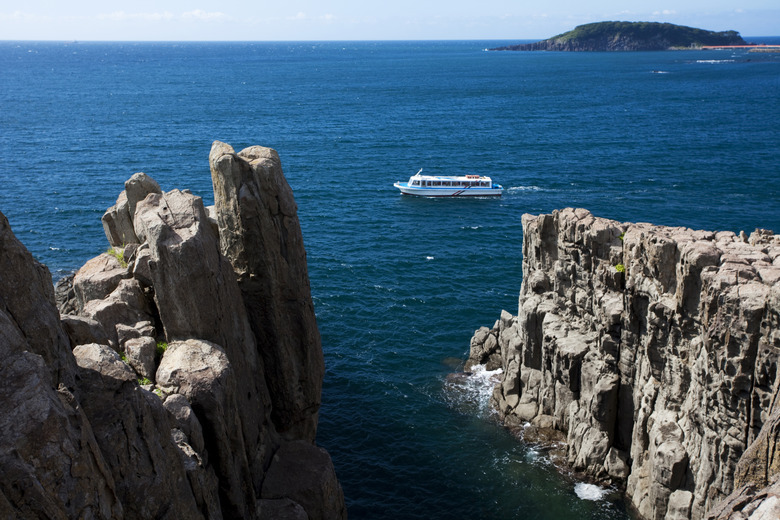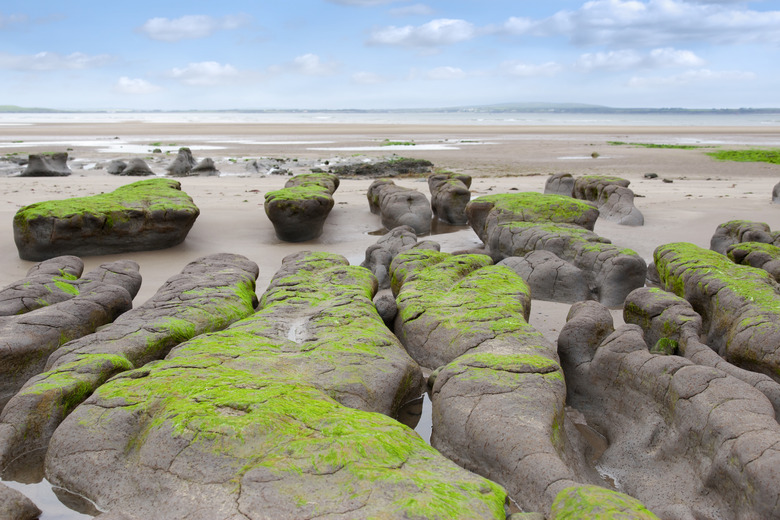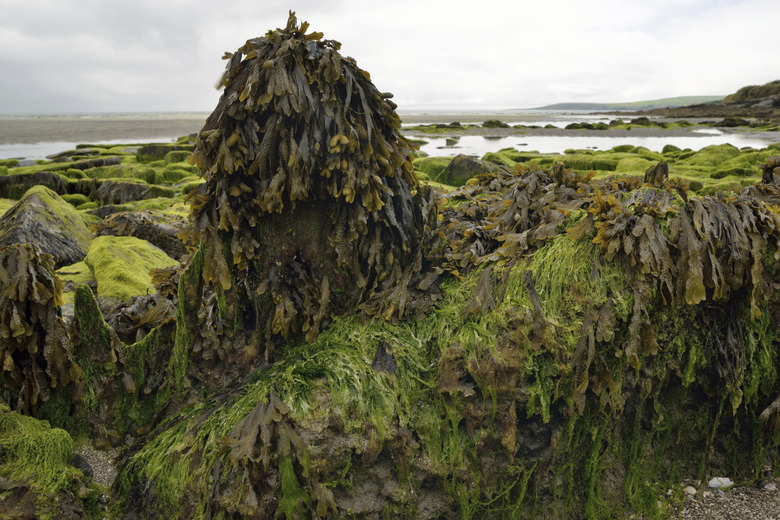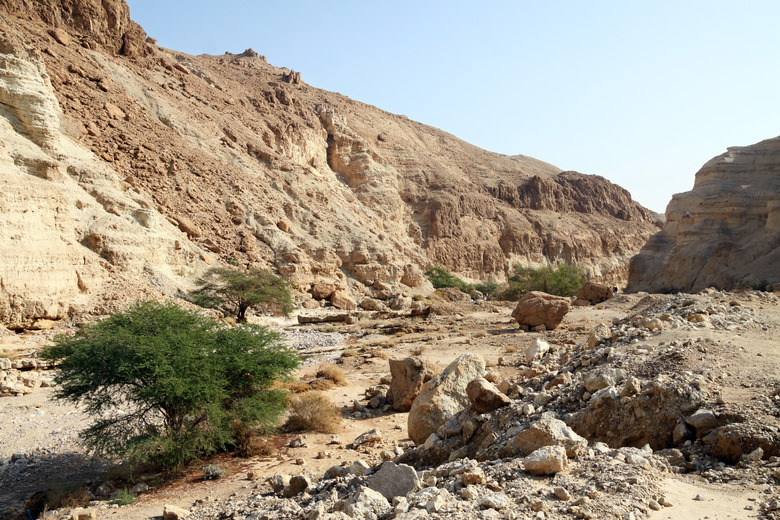Weathering Effects
The effects of weathering disintegrate and alter mineral and rocks near or at the earth's surface. This shapes the earth's surface through such processes as wind and rain erosion or cracks caused by freezing and thawing. Each process has a distinct effect on rocks and minerals. The three forms of weathering include mechanical, biological and chemical.
TL;DR (Too Long; Didn't Read)
Weathering erodes and breaks apart minerals and rocks.
Cracking and Breaking
Cracking and Breaking
Mechanical weathering physically breaks down rocks because of environmental factors that include heat, cold, water and wind. One form of mechanical weathering is thawing or constant freezing of water. Water, in liquid form, penetrates the many fissures, joints and holes within a rock. It starts freezing as temperatures drop to 32 degrees Fahrenheit and below. As the water freezes, it expands and becomes about 10 percent larger. This expansion pushes the cracks and holes in rocks outward. Even the hardest rocks such as granite, cannot match the extremely strong force. Salt wedging is the other form of mechanical weathering. Water that enters the cracks and holes on the rock surface contains salt. As it evaporates, it leaves the salt behind. With time, the salt deposits build up. They create a strong pressure that causes rocks to weaken and break. Mechanical weathering is highly common in cold climates.
Altering Mineral Structure
Altering Mineral Structure
Chemical weathering causes the decomposition, dissolving and loosening of rocks. Chemical reactions destroy the bonds that hold the rocks together. This causes them to break into small pieces. One effect of chemical weathering is hydrolysis. Through hydrolysis, water gets added into the chemical structure of a mineral, which turns the mineral into a new one. For example, hydrolysis changes feldspar into clay. Because water is a catalyst in chemical reactions, chemical weathering occurs mostly in areas with plenty of water and high temperatures. It tends to be common in hot and humid tropics.
Changing Chemical Composition
Changing Chemical Composition
Biological weathering refers to the weakening and subsequent breakdown of rocks by microbes, animals and plants. Growing plant roots exert pressure or stress on rocks. By altering the chemical composition of rocks, the microbial activity disintegrates rock minerals. Lichen is a perfect example of a microbial activity. Lichen is algae and fungi living together. Fungi release some chemicals that break up rock minerals. Algae consume the broken minerals released from the rock. As the process continues, gaps and holes continue to build up on the rock thus exposing the rock to weathering. Some of the effects of biological weathering are breaking of particles, movement of minerals, mixing of materials and production of carbon dioxide.
Resistance to Weathering
Resistance to Weathering
Rocks are symbols of durability and strength. Rocks are normally resistant to weathering. This resistance depends on the rock's mineral porosity and mineral composition. The physically soft minerals are easily broken apart and crushed. With the harder minerals, it's quite difficult. The arrangement of the mineral grains and size of a rock control the entire weathering process. Some of the rocks susceptible to weathering are limestone and marble. Granite is a perfect example of a rock that is highly resistant to weathering.
Cite This Article
MLA
Vee, Annette. "Weathering Effects" sciencing.com, https://www.sciencing.com/weathering-effects-8012412/. 20 April 2018.
APA
Vee, Annette. (2018, April 20). Weathering Effects. sciencing.com. Retrieved from https://www.sciencing.com/weathering-effects-8012412/
Chicago
Vee, Annette. Weathering Effects last modified August 30, 2022. https://www.sciencing.com/weathering-effects-8012412/
